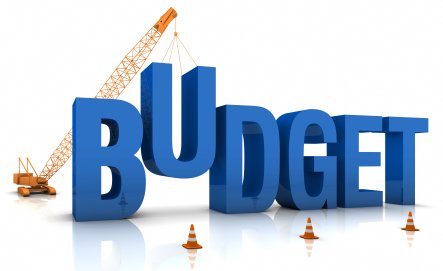A Comprehensive Guide to Funding Your Home Purchase
Home financing is a critical step in buying a property, as it involves securing the funds needed to purchase your home. Whether you’re a first-time homebuyer or looking to refinance your current mortgage, understanding your financing options is essential. This guide will help you navigate the world of home financing, providing insights into the various types of loans, the application process, and critical considerations.
Frequently Asked Questions
The primary types of home financing include:
- Fixed-Rate Mortgages: These loans have a fixed interest rate for the entire term, which means
your monthly payments remain consistent. They are ideal for borrowers who prefer stability and
long-term planning. - Adjustable-Rate Mortgages (ARMs): ARMs have an interest rate that changes periodically based
on market conditions. Typically, they start with a lower rate than fixed-rate mortgages, but the
rate can fluctuate over time, impacting monthly payments. - FHA Loans: Insured by the Federal Housing Administration, FHA loans are designed for
borrowers with lower credit scores and smaller down payments. They are popular among first-
time homebuyers. - VA Loans: Backed by the Department of Veterans Affairs, VA loans offer favorable terms such as
no down payment and competitive interest rates for eligible veterans and active service
members. - USDA Loans: The U.S. Department of Agriculture offers USDA loans for rural and suburban
properties. No down payment is required, and the loan is subject to income and property
eligibility.
To determine how much you can borrow, consider the following factors:
- Income: Your monthly income is crucial in determining your borrowing capacity. Lenders
typically use a debt-to-income ratio (DTI) to assess your ability to repay the loan. - Credit Score: Your credit score affects your loan eligibility and interest rate. Higher credit scores
generally qualify for better terms. - Down Payment: The amount you can afford to put down on the home affects your loan amount
and terms. A larger down payment reduces the loan amount and can improve your loan terms. - Existing Debt: Lenders consider your existing debt obligations to ensure you can manage
additional mortgage payments. A lower DTI ratio is favorable. - Loan Term: The loan term length affects your monthly payments and the total interest paid over
the life of the loan.
Mortgage insurance protects lenders in case you default on your loan. Whether you need mortgage insurance depends on the type of loan:
- Private Mortgage Insurance (PMI): Required for conventional loans with a down payment of less than 20%. It is typically added to your monthly mortgage payment.
- Federal Housing Administration (FHA) Mortgage Insurance: This insurance is required for FHA
loans and includes an upfront and monthly premium. - Veterans Affairs (VA) Funding Fee: A funding fee is charged for VA loans, but it is not mortgage
insurance. The fee can be financed into the loan amount.
When applying for a mortgage, you’ll need to provide various documents, including:
- Proof of Income: Pay stubs, tax returns, or bank statements to verify your income.
- Credit Report: Lenders will review your credit history and score.
- Proof of Assets: Bank statements or investment account statements to demonstrate your financial reserves.
- Employment Verification: Documentation from your employer confirming your employment
status. - Identification: A government-issued ID such as a driver’s license or passport.
- Property Information: Details about the property you intend to purchase, including the
purchase agreement and appraisal.
To improve your chances of mortgage approval:
- Check Your Credit Score: Review your credit report and address any errors. Aim to improve your
score by paying down debts and making timely payments. - Save for a Larger Down Payment: A larger down payment can improve your loan terms and
reduce the need for mortgage insurance. - Reduce Debt: Lower your debt-to-income ratio by paying off existing debts.
- Gather Necessary Documentation: Ensure all required documents are ready and organized for
the application process. - Shop Around for Lenders: Compare mortgage rates and terms from different lenders to find the
best offer.
Closing costs are fees and expenses incurred when finalizing your mortgage, including:
- Origination Fees: Charged by the lender for processing the loan.
- Appraisal Fees: For assessing the property’s value.
- Title Insurance: Protects against title defects.
- Inspection Fees: For a home inspection.
- Property Taxes and Insurance: Prepaid amounts for taxes and insurance.
Closing costs typically range from 2% to 5% of the home’s purchase price. Budgeting for these costs, in
addition to your down payment, is essential.
Key Terms
A loan with an interest rate that remains the same throughout the term of the loan, providing stable
monthly payments.
A loan with an interest rate that can change periodically based on market conditions, potentially altering monthly payments.
For conventional loans with a down payment of less than 20%, insurance is required to protect the lender in case of default.
Insurance is required for FHA loans, including an upfront and monthly premium.
A fee is charged for VA loans, which can be financed into the loan amount but is not considered mortgage insurance.
The initial payment made towards purchasing a home is expressed as a percentage of the home’s purchase price.
A ratio used by lenders to evaluate your ability to manage monthly payments is calculated by dividing your monthly debt payments by your gross monthly income.
A numerical representation of your creditworthiness based on your credit history and financial behavior.
Fees and expenses paid at the closing of a real estate transaction, including origination fees, appraisal fees, and title insurance.
Related Post
-
MFS
- 19 Sep 2024
Saving for Education: How to Plan and Budget for College or Other Educational Expenses
Schooling is perhaps one of an individual or family's main speculations. In any case, the increasing expense of educational costs,…
-
David Harper
- 06 Sep 2024
Travelling on a Budget: How to Explore the World Without Breaking the Bank
Going on a Tight spending plan: How to Investigate the World Without Burning through every last cent Venturing to the…
-
David Harper
- 06 Sep 2024
Budgeting Basics: Creating a Budget That Actually Works
Arranging is fundamental to the financial organization, yet numerous people need help making a spending arrangement they can stick to.…
-
David Harper
- 29 Aug 2024
Basics of Budgeting: How to Create a Budget That Works
Making a spending arrangement is fundamental to achieving money-related trustworthiness and ensuring that your compensation aligns with your monetary goals.…
-
David Harper
- 24 Jul 2024
Budgeting for Big Life Changes (e.g., Marriage, Parenthood, Retirement): Financial planning tips for major life transitions
Budgeting is one of the crucial and significant steps humans take to maintain and ensure stability, balance, and readiness for…
-
MFS
- 24 Jul 2024
Navigating Budgeting During Economic Uncertainty: Essential Tips for Financial Stability
Assess Your Financial Situation The first step in adjusting your budget during economic uncertainty is thoroughly assessing your financial situation.…






